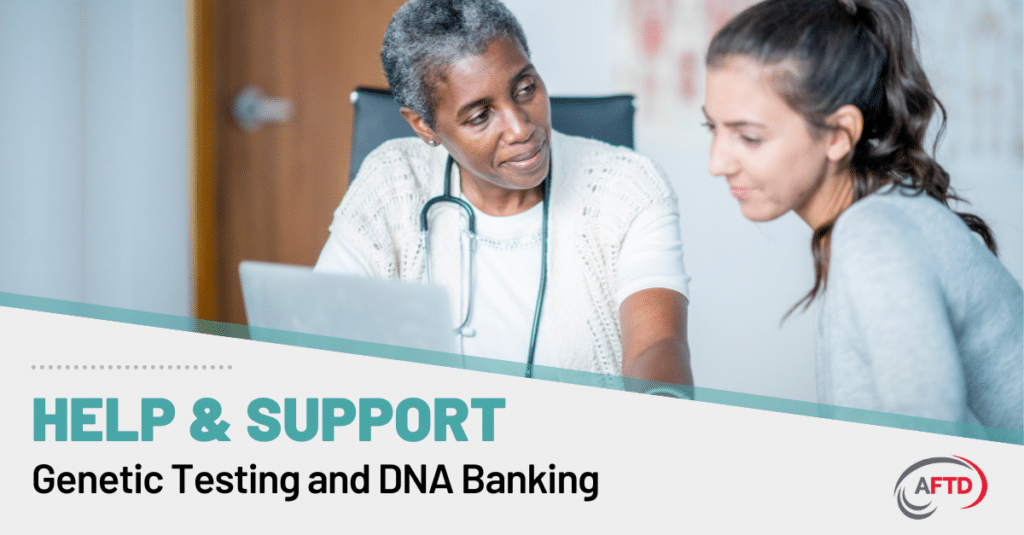Help & Support: Genetic Testing and DNA Banking

The decision to undergo genetic testing for FTD is deeply personal. Many want to know their genetic status to aid in family and financial planning, or to determine if they can participate in studies testing experimental FTD treatments focused on specific genes. Some people do not wish to know if they have a genetic form of FTD for their own personal reasons. A genetic counselor can help navigate a person’s concerns while also considering relatives’ perspectives. In addition, they can help to determine who in the family would be the most appropriate to test and how to start the process.
DNA banking offers another option for families considering genetic testing. DNA banking is a safe and secure way to preserve a person’s DNA, typically for several decades. It works like a regular bank account, only you, or a person you designate, can access the DNA. A designated person could be a spouse, relative, or another trusted person.
DNA banking preserves the option to explore the FTD genetics of your family when:
- the affected person declines testing
- previous genetic results were inconclusive
- results were negative in a family with a clear pattern of inherited FTD
Your banked DNA can be tested in the future and help provide answers for your family by confirming a diagnosis, giving at-risk family members the option to be tested for the family variant, and shortening the time needed for relatives to get an accurate diagnosis.
Your genetic counselor can help you choose a reliable laboratory for DNA banking. The process is simple; you submit either a saliva or blood sample, often collected from the comfort of your own home. Most laboratories will send a postage-paid return package. The lab isolates DNA from the sample and stores it for several decades. Most labs charge a one-time fee, typically a few hundred dollars.
Researchers are making progress in identifying ways to treat, or even cure, FTD. Just as a will or insurance policy offers financial security for your family, DNA banking offers an option for future generations to better understand their inherited risk and take proactive measures, such as participating in research for the best path forward.
To stay informed about research advances and learn about new opportunities to participate in research, consider joining the FTD Disorders Registry. The Registry is a secure online, non-profit database for people with lived experience of FTD. By enrolling in the Registry, you can learn when research opportunities appropriate for you are available. Enrolling in the Registry also helps researchers see how many people may be available for research, a critical step to encourage researchers to focus drug development on a specific gene.
To learn more about people’s experiences with genetic testing, register for the upcoming AFTD Educational Webinar Genetic FTD: To Test or Not to Test on August 15 at 3 p.m. Eastern Time.
Learn more about DNA banking by clicking here or contacting your genetic counselor.
If you have additional questions about genetic testing, reach out to the AFTD HelpLine at 1-866-507-5222 or info@theaftd.org.
By Category
Our Newsletters
Stay Informed
Sign up now and stay on top of the latest with our newsletter, event alerts, and more…
